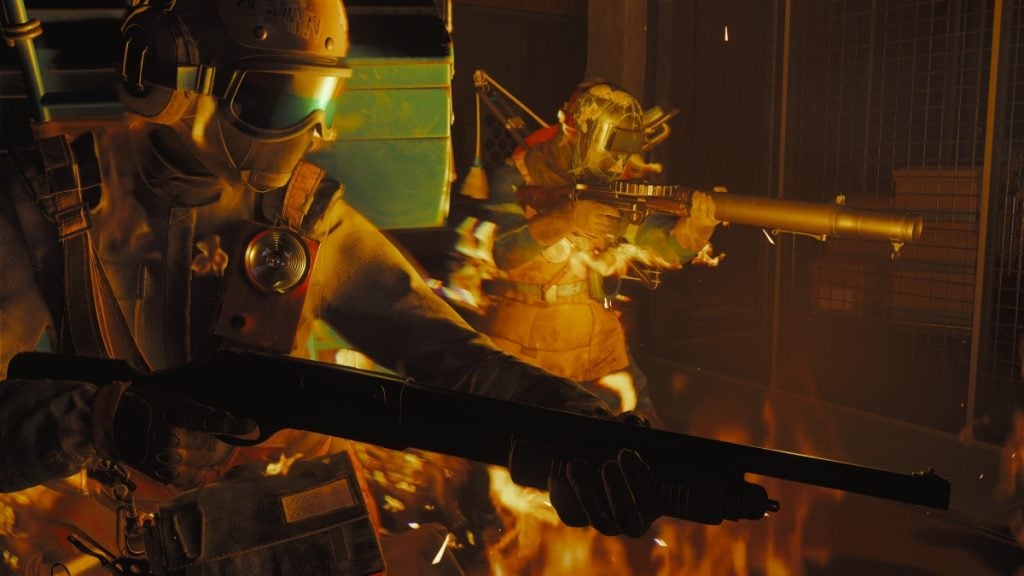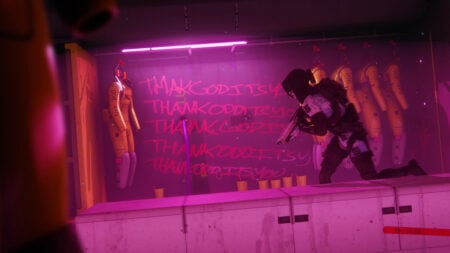Skip To...
Remedy Entertainment is a studio that has delivered some of the most memorable and unique games in the last few years. One of my favorites, and the one that really hooked me into all the surreal things this company does, was Control. So, imagine my surprise when I learned Remedy would take a shot at the online co-op market with a game set in the Control universe. Like many, I was skeptical. But after beating a few sticky note monsters and filling myself with radiation, among other things, I can say that FBC: Firebreak is a fantastic addition to the co-op FPS landscape that stands out due to its uniqueness and approachability.
Welcome to the Bureau
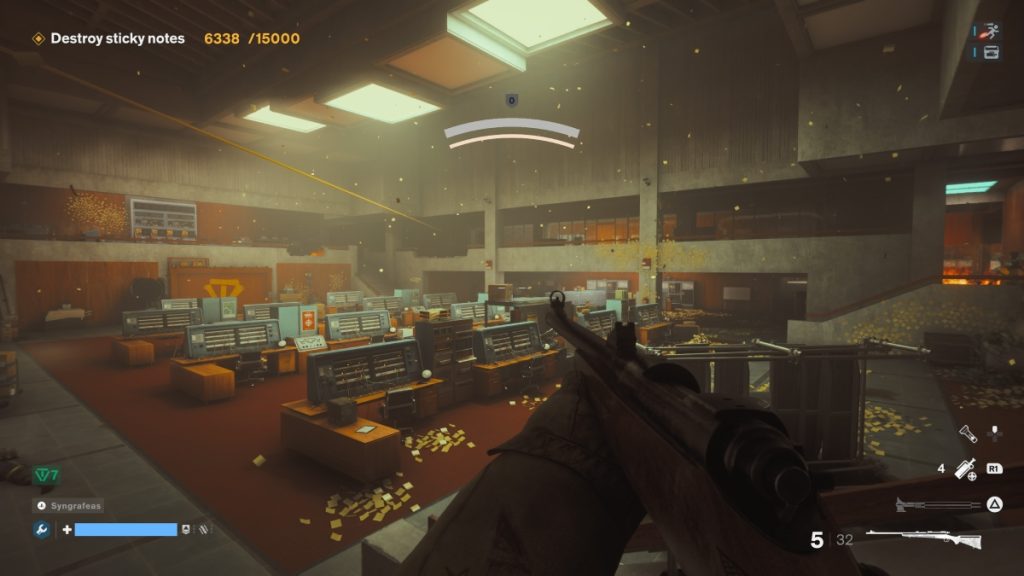
FBC: Firebreak takes place six years after the events of Jesse Faden’s last adventure in Control. We’re once again inside the Oldest House. You’re part of the responders who, for better or worse, stuck around after the Hiss invasion. Now it’s up to you to contain the bizarre events happening inside the Bureau.
As soon as you step into any of the jobs, you’ll see how perfectly crafted the Oldest House is. If you played Control, you’ll feel right back at your bizarre home packed with supernatural happenings. As a veteran fan, I loved seeing the familiar corridors and the same annoying Hiss enemies Jesse used to face.
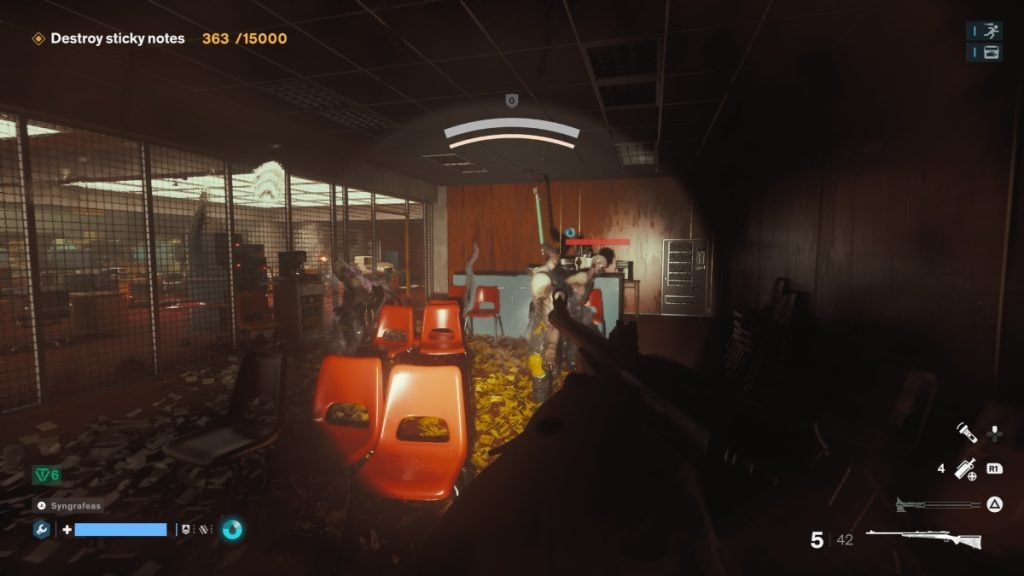
However, the outstanding thing is how well everything adapts to the online co-op FPS genre. I’ve grown tired of seeing co-op games or FPS titles that look as if they came from the same mold. They are either Call of Duty-like or sci-fi with the live show gimmick. They have all become too similar. On the other hand, FBC: Firebreak embraces the bizarreness that is so iconic of Remedy Entertainment and does it perfectly.
In one job, you’ll be repairing fans to cool down the area. But in other ones, you’ll be placing heaters around frost anomalies. In others, fighting a giant monster made of sticky notes. These are things that the genre desperately needs to make it feel fresh and relevant, but more importantly, encourage players to leave the CoD-riddled landscape. In terms of style, uniqueness, and mechanics, FBC: Firebreak does a terrific job.
Another Day, Another Job
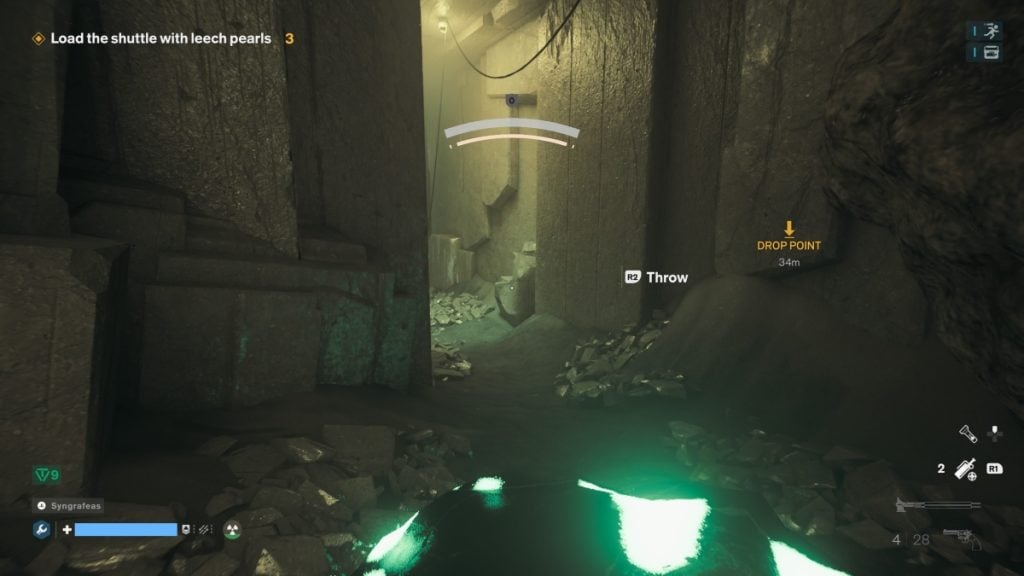
FBC: Firebreak features a job system, which is basically how it calls its missions. All five missions were available during the review period. However, Remedy has already said that more will come later in the year. Each of these five missions has different stages and difficulty levels. The highlight of this design choice is how it gives you all the freedom to tailor your match to be as long and as hard as you want it to be.
For instance, the first job is called Hot Fix. The first stage requires you to fix up a few fans and leave. However, the second stage adds another zone with more things that need fixing. Then, the third stage adds the two previous zones plus a new one where you need to turn off the furnace that is wreaking havoc in the area.
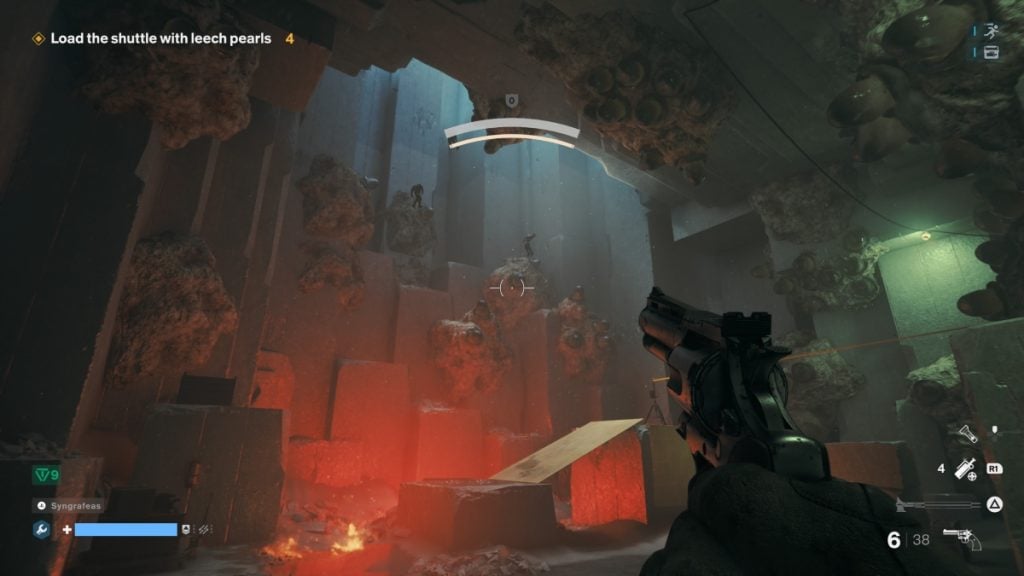
The same applies to all other jobs. You can even increase the difficulty of each mission and add a few modifiers like corrupted objects, which negatively affect your match until you deal with them. If you get rid of them, you’ll get currency to upgrade your gear or unlock new things.
The level of player agency in FBC: Firebreak is terrific. It reminds me a bit of how Helldivers 2 works when you drop into the planets. If you want a quick match, you can select the easiest difficulty and the lowest clearance to have a 10-minute match. Yet, if you want to push it, you can go wild with corruption, pump up the difficulty and clearance, and see how far you make it.
The More, the Merrier
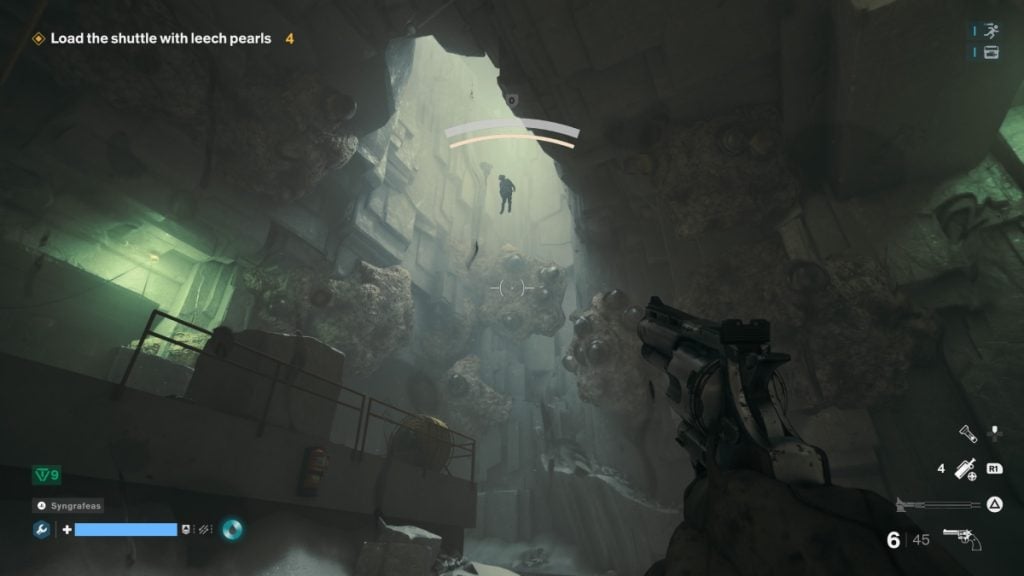
Fortunately or unfortunately, depending on the type of player you are, FBC: Firebreak is tailored way more to be a co-op game, and it makes sense because it is one in every sense. You can play all jobs solo, regardless of the clearance and difficulty level. However, it suffers slightly from a similar issue that Elden Ring: Nightreign had: solo balance.
I couldn’t find many matches during the review period, so I mainly played solo. On the one hand, it balances some important stuff like enemy waves. Whenever the Hiss appeared, it did so in manageable numbers, and it slowly ramped up depending on how much time I spent on the mission. However, when I pumped the difficulty, it became way too hectic and not that enjoyable. Some might call this a skill issue, but I was still getting my responder butt handed to me after upgrading my loadout. It isn’t a world-ending thing or a turn-off, but I believe a few balance tweaks could help, especially for those who want to jump into the Oldest House on their own.
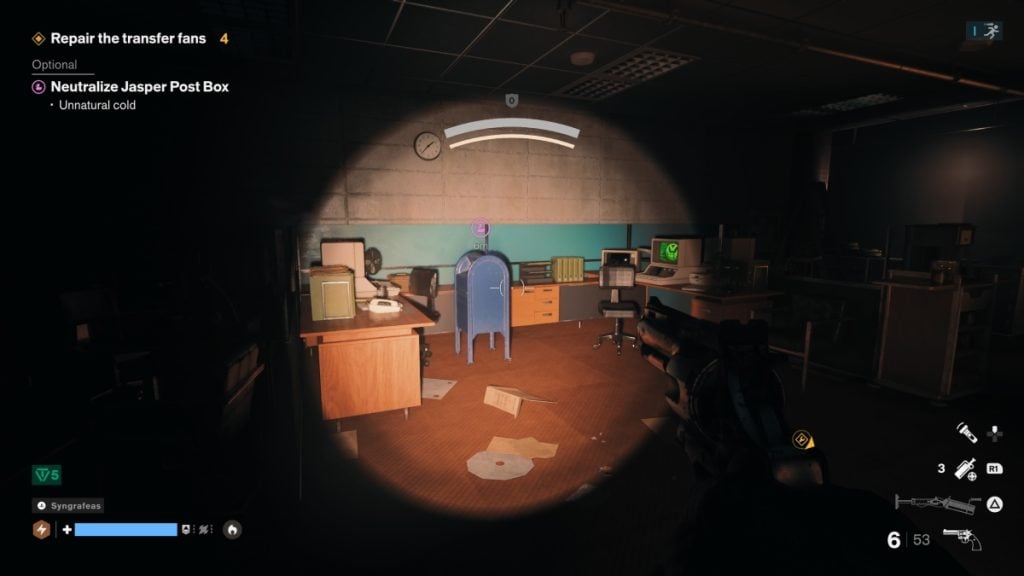
When it comes to the co-op, it is superb. I played in matches of two and three people and always felt the balance was perfect. Furthermore, completing objectives is significantly faster and even more engaging because everyone ideally has a different loadout. For instance, all characters can select a Crisis Kit. These kits have different abilities, and you get a few more once you unlock them through Requisitions. One is a wrench that allows you to repair broken panels by hitting them. However, the jump kit can only fix them by completing a mini-game that involves pressing a sequence of buttons. This design felt unique as it encourages players to add variety to their loadouts, filling the gaps that might exist on their team.
Overall, FBC: Firebreak is an excellent experience for solo and co-op players, but it favors the latter. You’ll have a better time with other responders, and everything will feel much more balanced. It also helps that everyone can bring different gadgets and weapons, providing a more chaotic and, if desired, strategic match. Yet, the solo part is pretty good, and some minor tweaks might be needed to make it feel perfect.
An Approachable and Bizarre Arsenal
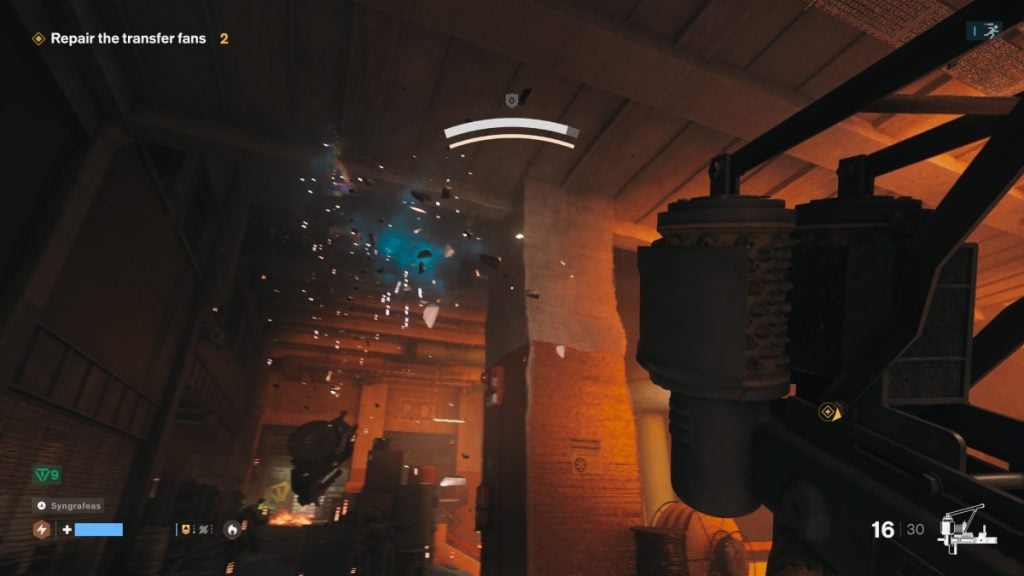
The biggest surprise of FBC: Firebreak is its progression system. Once again, allow me to compare it to Helldivers 2, especially in its Warbonds system. Helldivers 2 has a standard Warbond that contains many cosmetics and weapons you can unlock for your character. Furthermore, it lacks the FOMO part, as all of them stick around once they launch. No Battle Pass-like system there. FBC: Firebreak goes down that same path, and I love it.
In FBC: Firebreak, they are referred to as requisitions. These reward tracks contain new weapons, new tiers for your existing guns, cosmetics, grenades, and more. To unlock them, you only need to play your matches and obtain currency. As someone tired of the Battle Pass-like approach that Fortnite, unfortunately, made famous, I find this highly refreshing and a pretty approachable one, especially for casual players who just want to play a few matches a day.
Research, however, is another progression system that includes all the passive perks you can unlock for your responder. When you level your character up, you’ll unlock new perk slots, and you can get new perks by spending the currency you need for Requisitions. You can also use other currencies, which you’ll only get after dealing with corrupted objects. This is yet another excellent design choice because it encourages players to play with modifiers on their matches to hopefully grab a few passive skills. Yet, if you don’t unlock any perks, that’s fine. While some are powerful, I never felt they were mandatory to complete a run.
The Remedy for the Genre
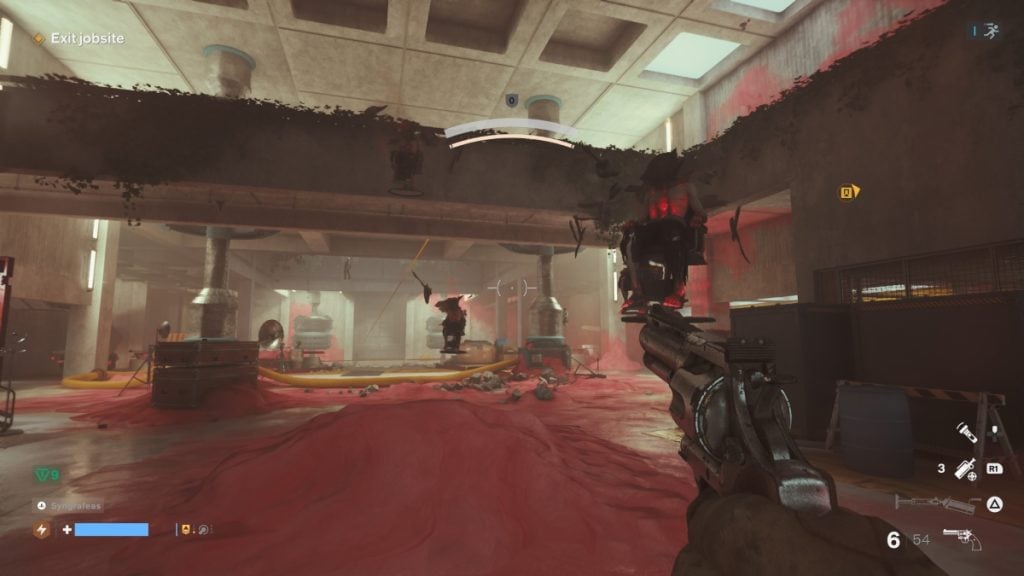
It’s always scary to see a new online co-op game with FPS elements emerge. If we examine recent cases, not all of them have managed to stay afloat. However, FBC: Firebreak is doing everything to rise above the water and float among some of the best we have in the market, surpassing a few of them. It is approachable to all players, extremely beginner-friendly, and, most importantly, consumer-friendly.
While I think it needs some balance tweaks for solo players, they are only minor changes and a few that some might not even care about because the core gameplay loop and all the design choices are so solid that they make FBC: Firebreak one of the best and most unique co-op experiences I’ve played since Helldivers 2.
FBC: Firebreak (PS5 Reviewed)
FBC: Firebreak is an excellent online co-op experience made by the creative minds behind Control. It is an approachable game with no FOMO systems that also includes a highly engaging gameplay loop with unique objectives and mechanics.
Pros
- Excellent objective variety
- Great progression systems
- A lot of player agency when it comes to match customization
Cons
- Solo mode might need a few tweaks

